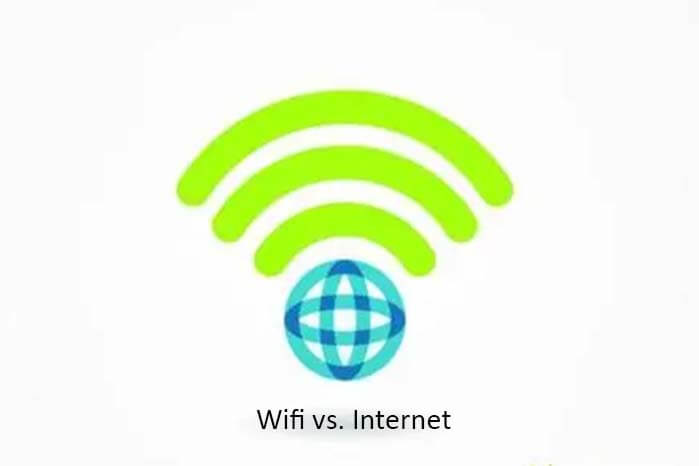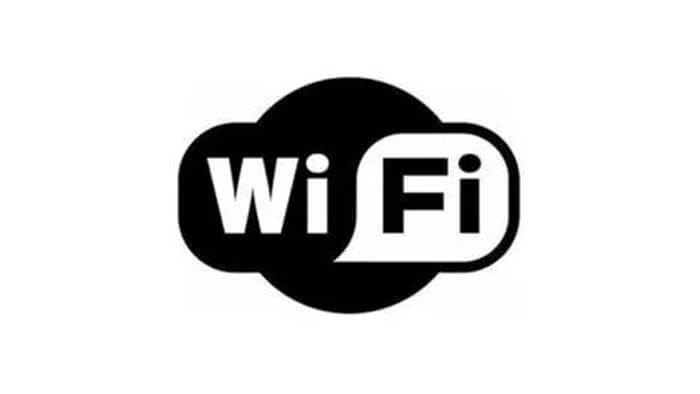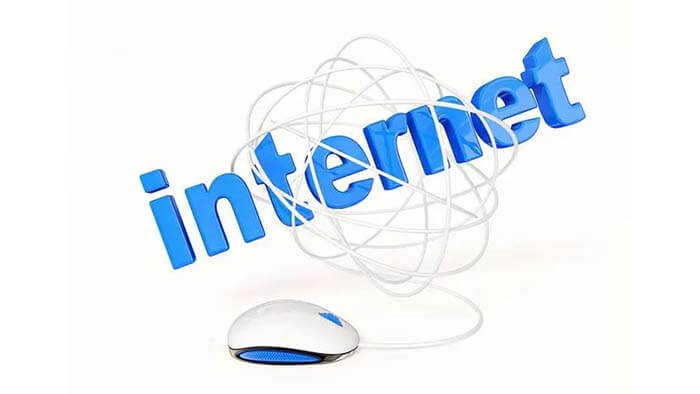
After the read of Wifi vs. Internet, What is the difference between Wifi and Internet, you will know:
What is Wifi?
What is the structure of WiFi?
What are the WiFi protocol standards?
What are the features of Wifi?
What is Internet?
What are the advantages of the Internet?
What are the features of the Internet?
Wifi vs. Internet, the difference between Wifi and Internet
What is Wifi?

Wi-Fi is a technology that can connect terminals such as personal computers and handheld devices (e.g. pads, cell phones) to each other wirelessly, and in fact, it is a high-frequency radio signal.
WiFi wireless is really a small network where smartphones, computers, or other networkable devices connect wirelessly in a small area and share the Internet using hotspots. WiFi uses radio frequency waves for wireless high-speed Internet and network connections. Wifi can be used to connect printers, computers, game consoles, mobile devices, etc.
WiFi-related basic concepts
1) An AP, or wireless access point, is the creator of a wireless network and is the central node of the network. The general home or office uses of wireless routers on an AP.
2) STA site, each terminal connected to the wireless network (such as laptops, PDAs, and other user devices that can be networked) can be called a site.
3) Wifi Equivalent to a local area network protocol, designed to improve interoperability between wireless network products based on the IEEE 802.11 standard.
4) Mac is simply the physical address of a terminal, which uses a hexadecimal expression (0E-SD-23-RF-4Y) globally unique.
Wifi mac is the identification of the terminal in the LAN.
SSID is the abbreviation of Service Set Identifier, which means: Service Set Identification. SSID technology can divide a wireless LAN into several sub-networks that need different authentication, and each sub-network needs independent authentication, only users who pass the authentication can enter the corresponding sub-network, preventing unauthorized users from entering this network.
What is the structure of WiFi?
The basic equipment for setting up a wireless network is a wireless network card and an AP so that the network resources can be shared in a wireless mode with the existing wired architecture, and the cost and complexity of setting up are much lower than a traditional wired network. If it is only a peer-to-peer network of several computers, you can also do without an AP, and only need to equip each computer with a wireless network card.
AP is short for Access Point, which is generally translated as “wireless access point”, or “bridge”. It mainly plays the role of a bridge between wireless workstations and wired local area networks in the media access control layer MAC.
With an AP, just like a general wired network Hub, wireless workstations can be quickly and easily connected to the network.
Especially for the use of broadband, wireless fidelity is more advantageous. After the wired broadband network (ADSL, cell LAN, etc.) arrives at the home, connect to an AP and then install a wireless network card in the computer.
An ordinary household with an AP is sufficient, and even the user’s neighbors are authorized to access the Internet in a shared way without adding ports.
What are the WiFi protocol standards?
WiFi protocol standards include 802.11a (first generation), 802.11n (the fourth generation, operating in both 2.4Ghz and 5Ghz dual bands), and 802.11ac (fifth generation), and only WiFi using the 802.11ac protocol is truly 5G WiFi).
The sixth generation technology standard, which is commonly known as wifi6, uses the 802.11ax protocol.
What are the features of Wifi?
Wifi is Wireless Internet Access.
WiFi is a wireless networking technology used to send and receive signals from nearby devices to provide Internet access.
In Wi-Fi, radio frequency waves are used to send and receive information.
WiFi is one of several ways to access the Internet.
Wireless devices can be connected to WiFi, but not necessarily to the Internet.
In WiFi, a DSL device and router are required.
In WiFi, the computer is connected to the Internet.
What is Internet?

Internet is a global network of computers that communicate with each other through the Internet Protocol.
What are the advantages of the Internet?
The system is not associated with a specific private network, users can easily access any node on the network anywhere in the world, at any time;
The user’s computer and network operation requirements are very low;
Most of the messages are formed by filling in screen documents;
The bandwidth of Internet is high;
The cost of Internet is low.
What are the features of the Internet?
The Internet is a telecommunications network technology through which devices are interconnected worldwide.
And on the Internet, a set of predefined rules controlled by the TCP/IP suite is used.
And unlike Wi-Fi, the Internet is the language of computer communication.
On the Internet, WiFi is not required to connect computers globally.
In the Internet, devices are needed to connect to the Internet and LAN servers.
And on the Internet, many computers are already connected to the network.
Does Internet include WiFi?
Actually, WiFi and the internet are two separate entities that work together to give you the internet access you enjoy every day.
Are the internet and wifi the same thing?
Internet is the online network we use today; wired communication services are provided by Telecom/Netcom etc. in China.
While WIFI is a wireless link technology, applied to short-range wireless communication connections.
The two are not the same concept.
And the other 2G/3G/4G/5G network, which is a wireless communication network protocol, is applied to mobile devices (cell phones, mobile computers, etc.).
Wifi vs. Internet, What’s the difference between Wifi and Internet?
Wi-Fi and the Internet are two completely different things. Wi-Fi is more like a facility that provides wireless Internet access to a smartphone, computer, or another device within a selected range. wired Internet access for smartphones, computers, or other devices within a selected range.
The Internet, on the other hand, is a language in which computers communicate (send and receive information) via the Internet Protocol. It is similar to a large network of networks that connects multiple computers across the globe so that a user on one computer can interact or share information with a user on another computer as long as they are connected to the network It’s a network that connects multiple computers worldwide so that a user on one computer can interact or share information with a user on another computer as long as they are connected to the network.
So, let’s look at the difference between Wi-Fi and the Internet. We listed the difference between Wifi and Internet as the below.
No. | Wifi | Internet |
Wifi vs. Internet Concept | WiFi is a wireless network that connects nearby devices to each other and shares the Internet through hotspots. | The Internet is a global network that connects computers around the world. |
Wifi vs. Internet Transmission | WiFi uses radio frequency waves to transmit data. | The Internet is based on a predefined TCP/IP protocol that allows data to be transferred between various computers. |
Wifi vs. Internet Connection | WiFi can be used to connect wireless devices, but these devices do not need access to the Internet. | WiFi is not required to connect all computers to the Internet. |
Wifi vs. Internet Devices | In WiFi, a DSL device and a router are required to connect. | A modem, router, or switch is required to connect to the Internet or a LAN server. |
Which is better? WiFi or internet?
An Ethernet connection is generally faster than a WiFi connection and provides greater reliability and security.
Besides this Wifi vs. Internet, What is the difference between Wifi and Internet article, you may also be interested in the below articles.
4G vs. 5G: What is the difference between 4G and 5G?
How to Choose the Best Antenna for Lora?
